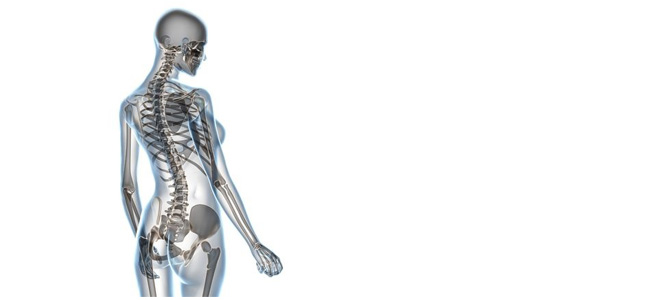Minerals are inorganic substances that provide physical structure to the body in the bones and also combine with other chemical regulators such as enzymes to shape biochemical processes. They divide in to two groups – the major and the trace minerals.
The major minerals are those which we need to consume in amounts greater than 100 mg/day or which represent greater than 0.01% of our body weight and the trace minerals in amounts less than 100 mg/day and less than 0.01% of bodyweight.
The major minerals include sodium, potassium, calcium, magnesium, phosphorous and chloride whilst the trace minerals include iron, zinc, copper and chromium. Although the titles may suggest otherwise, both major and trace minerals are of equal importance to the body and a deficiency in any of the minerals has potentially damaging consequences.
Most important minerals for bone health
Calcium
There are many dietary sources of calcium, so much so that it is rarely a mineral found to be deficient in the general population. Good sources include dairy, cheese, yoghurt, salmon, sardines, clams, oysters, turnips, mustard, greens, broccoli, cauliflower, kale and Bok Choy.
Phosphorus
Rich food sources include sardines, dairy foods, almonds, cashew nuts, brazil nuts, chicken, beef, garlic and eggs.
Magnesium
Magnesium rich foods include almonds, cashews, halibut, kale, celery, spinach, broccoli and green beans.
Zinc
Some good food sources of zinc include red meats like beef, lamb, venison and vegetables such as spinach, broccoli, and asparagus. Oysters and liver probably top the pile for zinc containing foods.
Boron
Boron is not required in high levels in the diet and will mostly be met with a good whole food diet, particularly fruits and vegetables.
Silica
Good food sources of silica include: leeks, green beans, banana, strawberries, cucumber, mango, celery, asparagus and rhubarb.
Potassium
Potassium rich foods include bananas, coconut water, cantaloupe, honeydew melon, mango, papaya, avocado’s, root vegetables, leafy greens, mushrooms and apple cider vinegar.
Chromium
Chromium rich foods include bananas, chicken, broccoli, tomatoes, black pepper, green beans, apples, eggs, dairy, oats, barley and brown rice.
Strontium
The good news is adequate levels can easily be found in the foods we eat, so long as we consume a good whole food diet, good foods specifically include brazil nuts, dairy foods and mineral water.
Manganese
Tea and also numerous vegetables can be beneficial in supplying adequate manganese to the body.
The moral of the story is, eat whole foods usually a mix of fruits, vegetables, animal proteins, some nuts and you will likely be doing what you can to support mineral status through diet.
At the same time avoiding processed grains and nutrient robbers like alcohol and cigarettes where possible is a great help to overall nutrient status.
On occasions extra support may be required and a full assessment with Steve can put you on a path to determining if mineral insufficiencies might be affecting your health through symptom analysis and if require blood mineral analysis.
Contact Steve Grant Health
To learn more out how Steve Grant Health can assist you on your journey, please fill out the enquiry form below.
Please note that depending on your specific circumstances and goals, Steve may recommend that you work with one of the specialist practitioners within his network of trusted professionals.
If you have been referred by a clinician, please complete the form and ensure that you state who has referred you or have your practitioner email Steve direct to make a referral that way.
Click the button below to open the client enquiry form:
[widgetkit id=”643″]


